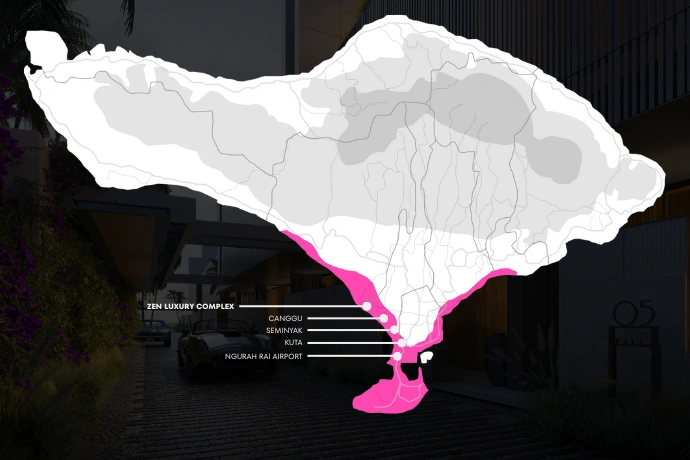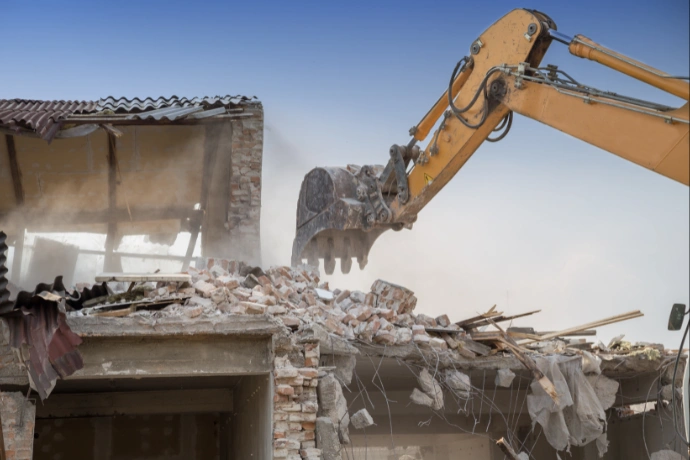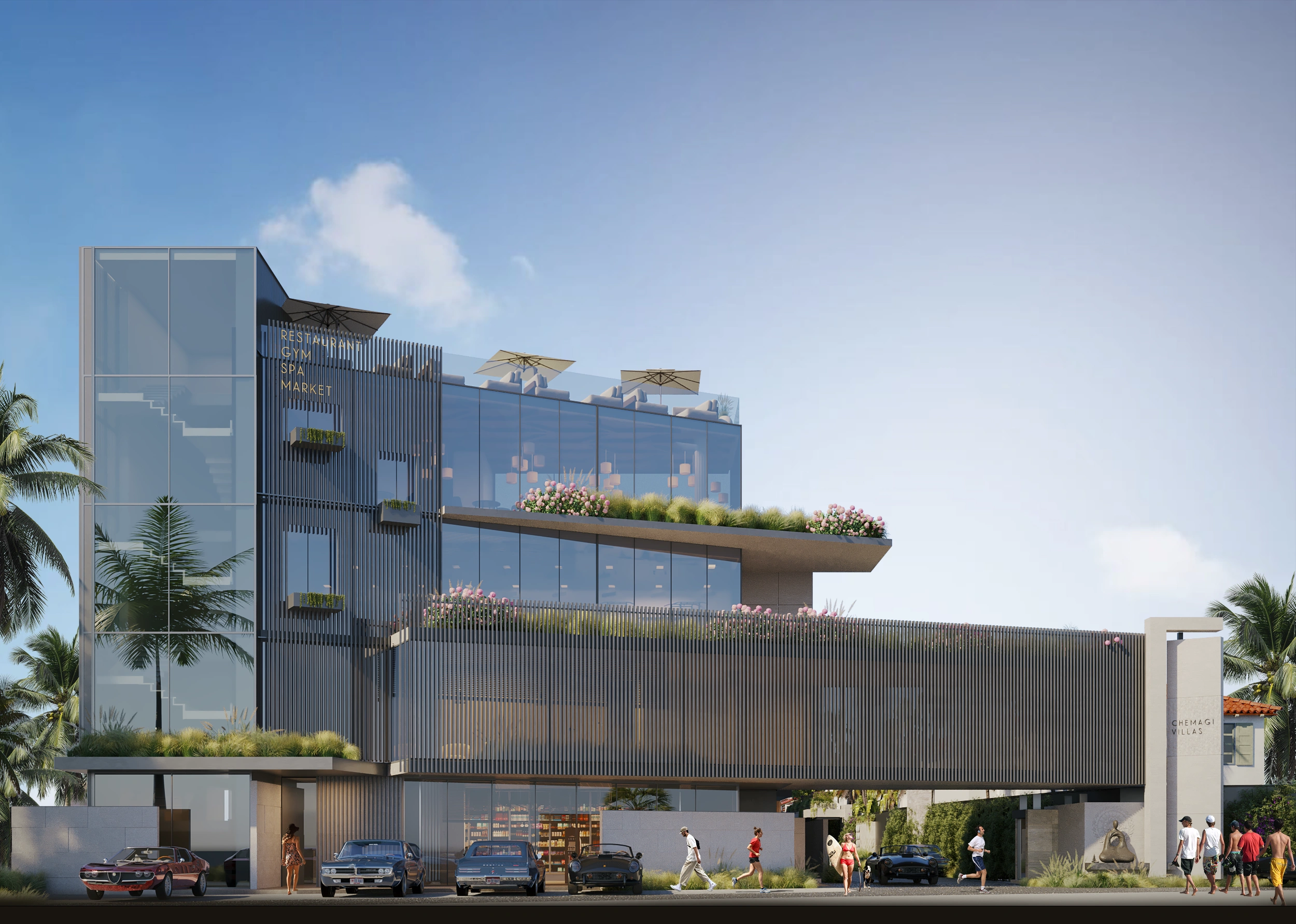- HOME
- ARTICLES
Understanding Bali’s Pink Zone: What Every Investor Needs to Know
- September 21, 2025
- Articles

Bali, Indonesia – October 20, 2025
Remarc Group – Premium Real Estate and Investment Opportunities in Bali
Bali is one of Southeast Asia’s most dynamic property markets, attracting investors from across the world. But beyond its famous beaches and cultural richness, the island’s zoning regulations play a critical role in shaping investment decisions. One of the most important concepts for investors is the “Pink Zone.” This article explains what the Pink Zone is, why it matters, and how building permits and legal compliance shape risks and opportunities based on current regulations and market practice.

What is the Pink Zone?
In Bali, land is divided into zoning categories based on function (residential, tourism, agricultural, conservation, etc.). One of the key categories is the Pink Zone (Tourism Zone) areas officially designated for the development of tourism accommodation such as villas, guesthouses, resorts, and rental apartments. (Bali Exception Real Estate; Investland Bali)
Tourism permits such as Pondok Wisata are typically associated with the Pink Zone because these zones are specifically intended for commercial tourism use. (Bukit Vista)

How Permits & Legal Regulations Work
To understand why the Pink Zone is crucial, it’s important to know how building permits and certifications function:
- PBG (Persetujuan Bangunan Gedung / Building Approval): The official permit for constructing, renovating, or modifying a building. It ensures compliance with local zoning, safety standards, and technical requirements. (Excel Bali)
- SLF (Sertifikat Laik Fungsi / Certificate of Proper Function): Issued after construction, this certifies that the building is safe and suitable for its approved function (e.g., villa, apartment, or resort). Without an SLF, a property cannot legally operate. (Excel Bali)
Transition from IMB to PBG/SLF: Indonesia has replaced the old IMB (Building Permit) system with the updated PBG/SLF framework, managed online via SIMBG (Building Management Information System). (Excel Bali)

Why the Pink Zone Matters for Investors
According to regulations and market practice, the Pink Zone provides several clear advantages:
- Legal Clarity & Compliance
Tourism zoning supports commercial accommodation projects. Outside the Pink Zone, permits such as Pondok Wisata or PBG are often rejected. (Bali Exception Real Estate) - Infrastructure & Access
Properties in the Pink Zone generally have better access to utilities (water, electricity), roads, and other supporting infrastructure. (Investland Bali)
Tourism Demand & ROI Stability
Being located in designated tourism areas ensures steady rental demand, higher occupancy rates, and stronger investment returns. (Investland Bali)
Risks of Investing Outside the Pink Zone
While land outside the Pink Zone may appear cheaper, it carries substantial risks:
- No valid tourism permits – Without the proper permits, rental operations can be considered illegal and may face penalties or demolition. (Bukit Vista)
- Zoning mismatch – Agricultural (Green Zone) or conservation areas prohibit commercial tourism development. (Ilot Property Bali)
- Complicated and costly rezoning – Applying for zoning changes outside tourism areas can take years, involve heavy bureaucracy, and often fails. (Investland Bali)
Demolition risk – Illegal constructions have been demolished in Bali, such as in Bingin where dozens of unlicensed businesses were removed in 2025. (The Guardian)
Risks of Investing Outside the Pink Zone
While land outside the Pink Zone may appear cheaper, it carries substantial risks:
- No valid tourism permits – Without the proper permits, rental operations can be considered illegal and may face penalties or demolition. (Bukit Vista)
- Zoning mismatch – Agricultural (Green Zone) or conservation areas prohibit commercial tourism development. (Ilot Property Bali)
- Complicated and costly rezoning – Applying for zoning changes outside tourism areas can take years, involve heavy bureaucracy, and often fails. (Investland Bali)
Demolition risk – Illegal constructions have been demolished in Bali, such as in Bingin where dozens of unlicensed businesses were removed in 2025. (The Guardian)

Zen Luxury Complex
The Zen Luxury Complex demonstrates best practice in Bali property development:
- Located within the Pink Zone, ensuring that permits like PBG, SLF, and Pondok Wisata can be processed legally.
- Legal clarity minimizes risks of disputes or enforcement issues.
- Supported by strong infrastructure and steady rental demand in a high-growth coastal area.
Offers 11–17% annual returns with a 7–8 year payback period, supported by Bali’s booming tourism sector.
Conclusion
Investing in Bali real estate is not just about scenic views. Legal compliance, zoning, and permits are what determine whether an investment is safe and profitable.
The Pink Zone provides:
- Legal certainty for tourism permits
- Better infrastructure access
- Consistent rental demand
- Sustainable ROI
By contrast, properties outside the Pink Zone expose investors to risks of denial, restrictions, and even demolition.
At Remarc Property Group, every project including the Zen Luxury Complex is carefully located within Bali’s legal Pink Zone, ensuring compliance, security, and long-term profitability for investors.
- 2025 | All Rights Reserved.